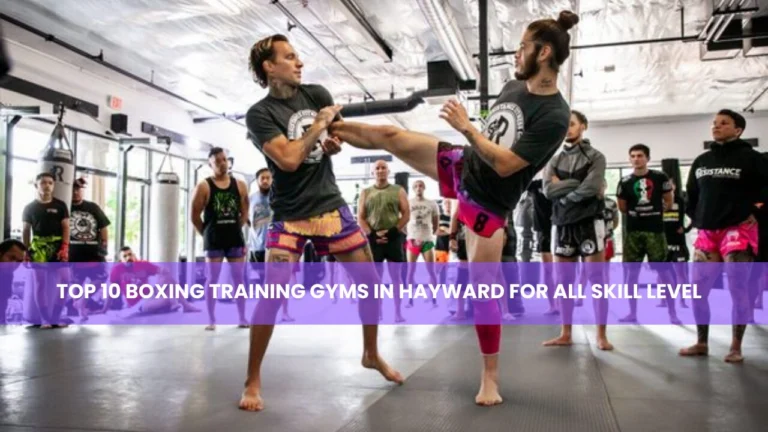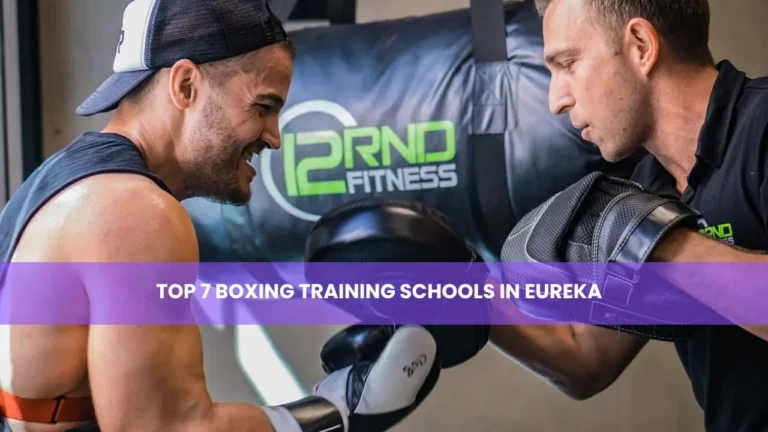Boxing is more than just a combat sport; it’s a full-body fitness regimen, a stress reliever, and a discipline that enhances your physical and mental strength. The good news is you don’t need a professional gym to enjoy the benefits of boxing. With the right boxing training equipment for home, you can build an efficient workout setup that matches your goals, whether it’s for cardio, self-defense, or prepping for competition.
In this guide, we’ll walk through the best home boxing gear, expert insights on setting up your space, practical training routines, and trusted equipment brands that meet professional standards.
Why Train for Boxing at Home?
Training at home has become increasingly popular for fitness enthusiasts and athletes alike. One of the biggest advantages is convenience. Instead of dealing with long commutes or adjusting to strict gym schedules, you have the freedom to train anytime in your own space. For many beginners, this flexibility helps establish consistency, which is crucial for progress.
Home training is also cost-effective. A one-time investment in quality boxing equipment saves you from recurring gym membership fees. Over time, the money saved can be redirected to upgrading equipment or even hiring occasional virtual coaching sessions for technique improvement.
Another important factor is privacy. Some people feel intimidated in gyms, especially when starting out. Training at home allows you to focus on your form without distractions or self-consciousness. You can progress at your own pace, experiment with techniques, and gradually build confidence before stepping into a ring or class.
Most importantly, boxing at home gives you access to an all-in-one workout. Unlike other training methods that focus on a single aspect of fitness, boxing simultaneously builds strength, endurance, agility, coordination, and speed. When done consistently, it’s one of the most balanced and effective workouts available.
Must-Have Boxing Training Equipment for Home
To recreate a gym-like experience at home, certain equipment is essential. Each piece has a specific purpose, and together they form a complete boxing setup.
1. Boxing Gloves
Boxing gloves are the cornerstone of every boxer’s toolkit. They protect your hands and wrists while absorbing the impact of punches. The type of gloves you choose depends on your training style. Lighter 12-ounce gloves are usually designed for cardio workouts and light training, while 14-ounce gloves are more versatile for bag work. For sparring or heavy training, 16-ounce gloves are recommended because of their extra padding and support.
Quality gloves should feel snug yet comfortable, with proper wrist support to prevent injury. Many professional boxers recommend gloves with moisture-wicking interiors to keep hands dry during intense sessions. Popular brands such as Everlast, RDX, and Title Boxing are known for durable, high-performing gloves that cater to both beginners and advanced athletes.
2. Hand Wraps
Hand wraps are a non-negotiable part of boxing safety. Wrapping your hands before every session protects your knuckles, tendons, and wrists from injuries. Traditional cotton wraps, usually around 180 inches long, offer full coverage and are ideal for serious training. For beginners who prefer speed and convenience, quick wraps provide an alternative that’s easier to put on. Regardless of which type you choose, the habit of wrapping before every workout is essential for long-term hand health.
3. Heavy Punching Bag
No home boxing setup is complete without a heavy bag. It is the core training tool for building punching power, refining technique, and improving endurance. A hanging heavy bag provides a realistic feel and swing, making it perfect for practicing combinations. However, not every home has ceiling support for installation, which is where freestanding bags become useful. They are ideal for apartments or rental homes, offering stability with a weighted base. For athletes who want reduced noise and shock absorption, water-filled bags are another option worth exploring.
For smaller living spaces, freestanding models with noise-reduction features are highly recommended. They allow you to train without disturbing neighbors while still enjoying the full benefits of heavy bag workouts.
4. Speed Bag
The speed bag is a classic tool for developing rhythm, hand-eye coordination, and shoulder endurance. Mounted on a platform, it helps sharpen reflexes and teaches boxers to maintain a steady punching rhythm. Short, quick sessions on the speed bag are perfect for improving timing and building arm stamina, making it an excellent addition to any home boxing gym.
5. Double-End Bag
For fighters who want to sharpen precision and reflexes, the double-end bag is invaluable. Anchored between the ceiling and floor, it mimics the unpredictable movement of an opponent. Training with this bag improves defensive skills, reaction time, and counter-punching ability. It also encourages footwork and head movement, making it a versatile training tool that goes beyond simple punching practice.
6. Boxing Reflex Ball
The reflex ball is a lightweight, portable, and fun training option. Attached to a headband with an elastic cord, the ball rebounds unpredictably, forcing you to improve accuracy, focus, and speed. Reflex balls come in different weights and difficulty levels, making them suitable for beginners as well as advanced boxers. They’re especially effective for warm-ups and sharpening coordination before moving to heavier drills.
7. Jump Rope
Every professional boxer swears by jump rope training, and for good reason. It’s one of the most effective tools for improving agility, cardiovascular endurance, and footwork. Adjustable speed ropes are perfect for beginners, while weighted ropes add resistance and help build strength. A simple warm-up with three rounds of skipping can drastically improve stamina and coordination.
8. Floor Mats or Boxing Surface
A proper surface protects both your joints and your floor. EVA foam mats or rubber tiles are excellent options, providing grip and shock absorption. They also reduce noise, which is especially important in shared living spaces. Training on mats ensures safer footwork and reduces the risk of injury during high-intensity workouts.
9. Mirror for Shadow Boxing
A mirror might seem like a minor addition, but it is one of the most effective self-coaching tools. Shadow boxing in front of a mirror allows you to monitor your stance, punches, and defensive movements. It helps correct mistakes in real-time and builds muscle memory. For solo training, it is an essential piece of equipment.
10. Core and Strength Equipment
Boxing is not just about throwing punches; it requires full-body strength and explosive power. Adding tools such as medicine balls, kettlebells, dumbbells, resistance bands, and a pull-up bar will significantly enhance your training. Medicine balls can be used for rotational power exercises, kettlebells and dumbbells for resistance training, and resistance bands for warm-ups and shoulder stability. A pull-up bar strengthens the back and arms, which are vital for punching power.
How to Set Up Your Home Boxing Gym
You don’t need a large space to build an effective boxing gym at home. Even a 6×6-foot area is sufficient if used wisely. A corner space can house your heavy or freestanding bag with mats to reduce noise. Wall space is ideal for installing a speed bag and a full-length mirror. The center of the room should remain open for skipping rope, shadow boxing, and movement drills. Small shelves or racks can be used to neatly store gloves, wraps, and accessories, keeping your training area organized and efficient.
Sample Home Boxing Routine (30 Minutes)
A structured boxing routine ensures you maximize training while avoiding burnout. Begin with a five-minute warm-up that includes skipping rope, dynamic stretches, and arm circles. For the main workout, alternate between shadow boxing and heavy bag rounds, followed by drills on the speed bag or reflex ball. End with core-focused exercises such as planks, crunches, or mountain climbers to build stability. Finally, cool down with deep breathing and full-body stretches to promote recovery and prevent stiffness.
Expert Tips: Training Smarter, Not Just Harder
Former amateur champion and boxing coach Mark Reynolds emphasizes the importance of equipment variety, noting that the double-end bag helped his timing and defensive movement more than traditional sparring. Personal trainer Tina Alvarez advises beginners to start slow, focus on proper technique, and increase intensity gradually. Both experts stress the importance of mirrors and instructional videos to avoid developing poor habits when training alone.
Trusted Brands for Boxing Equipment
When it comes to investing in boxing gear, quality matters. Boxing Essential is well-known for reliable gloves and beginner kits, while RDX Sports is highly rated for durable freestanding bags and gloves, backed by thousands of positive customer reviews. Everlast remains a classic choice, offering gloves, apparel, and training bags trusted by professionals worldwide. For budget-friendly options, Decathlon provides affordable yet dependable beginner equipment, with transparent product ratings to guide buyers.
FAQs
What’s the first thing I should buy for boxing at home?
Start with gloves, hand wraps, and a heavy bag. These are the core of most boxing workouts.
How do I choose the right heavy bag?
Consider your space, training goals, and ceiling strength. Freestanding bags are great for limited or shared areas.
Can I train for real fights using home equipment?
Yes, especially if you combine bag work, shadow boxing, and cardio. For sparring, work with a coach or partner.
What’s better: freestanding or hanging heavy bags?
Freestanding bags are more flexible for homes; hanging bags offer a more authentic training experience if properly installed.
Are smart boxing trackers worth it?
Yes, for motivated athletes. They help track punch count, intensity, and calories burned.
Conclusion
Creating your own boxing gym at home isn’t just practical—it’s empowering. Whether your goal is fitness, self-defense, or preparing for competition, the right equipment gives you the foundation to succeed. With gloves, wraps, bags, and consistent training, you can develop both physical and mental strength without ever stepping into a professional gym.
Invest wisely, follow structured routines, and train with discipline. Remember, the fight may take place in your living room, but the dedication and results are just as real as they are in the ring.




